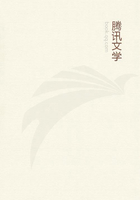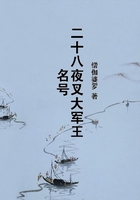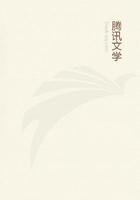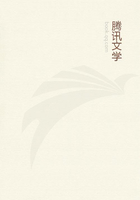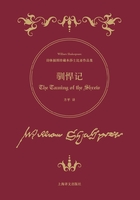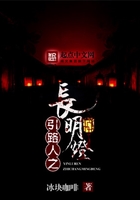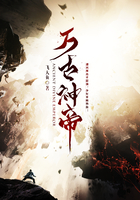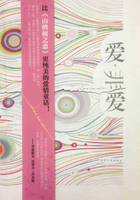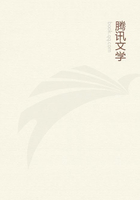Anthrenae do not subsist by culling from flowers as bees do, but for the most part on animal food: for this reason they hover about dung; for they chase the large flies, and after catching them lop off their heads and fly away with the rest of the carcases; they are furthermore fond of sweet fruits. Such is their food. They have also kings or leaders like bees and wasps; and their leaders are larger in proportion to themselves than are wasp-kings to wasps or bee-kings to bees. The anthrena-king, like the wasp-king, lives indoors. Anthrenae build their nests underground, scraping out the soil like ants; for neither anthrenae nor wasps go off in swarms as bees do, but successive layers of young anthrenae keep to the same habitat, and go on enlarging their nest by scraping out more and more of soil. The nest accordingly attains a great size; in fact, from a particularly prosperous nest have been removed three and even four baskets full of combs. They do not, like bees, store up food, but pass the winter in a torpid condition; the greater part of them die in the winter, but it is uncertain whether that can be said of them all, In the hives of bees several kings are found and they lead off detachments in swarms, but in the anthrena's nest only one king is found. When individual anthrenae have strayed from their nest, they cluster on a tree and construct combs, as may be often seen above-ground, and in this nest they produce a king; when the king is full-grown, he leads them away and settles them along with himself in a hive or nest. With regard to their sexual unions, and the method of their reproduction, nothing is known from actual observation. Among bees both the drones and the kings are stingless, and so are certain wasps, as has been said; but anthrenae appear to be all furnished with stings: though, by the way, it would well be worth while to carry out investigation as to whether the anthrena-king has a sting or not.
43
Humble-bees produce their young under a stone, right on the ground, in a couple of cells or little more; in these cells is found an attempt at honey, of a poor description. The tenthredon is like the anthrena, but speckled, and about as broad as a bee. Being epicures as to their food, they fly, one at a time, into kitchens and on to slices of fish and the like dainties. The tenthredon brings forth, like the wasp, underground, and is very prolific; its nest is much bigger and longer than that of the wasp. So much for the methods of working and the habits of life of the bee, the wasp, and all the other similar insects.
44
As regards the disposition or temper of animals, as has been previously observed, one may detect great differences in respect to courage and timidity, as also, even among wild animals, in regard to tameness and wildness. The lion, while he is eating, is most ferocious; but when he is not hungry and has had a good meal, he is quite gentle. He is totally devoid of suspicion or nervous fear, is fond of romping with animals that have been reared along with him and to whom he is accustomed, and manifests great affection towards them. In the chase, as long as he is in view, he makes no attempt to run and shows no fear, but even if he be compelled by the multitude of the hunters to retreat, he withdraws deliberately, step by step, every now and then turning his head to regard his pursuers. If, however, he reach wooded cover, then he runs at full speed, until he comes to open ground, when he resumes his leisurely retreat. When, in the open, he is forced by the number of the hunters to run while in full view, he does run at the top of his speed, but without leaping and bounding.
This running of his is evenly and continuously kept up like the running of a dog; but when he is in pursuit of his prey and is close behind, he makes a sudden pounce upon it. The two statements made regarding him are quite true; the one that he is especially afraid of fire, as Homer pictures him in the line-'and glowing torches, which, though fierce he dreads,'-and the other, that he keeps a steady eye upon the hunter who hits him, and flings himself upon him. If a hunter hit him, without hurting him, then if with a bound he gets hold of him, he will do him no harm, not even with his claws, but after shaking him and giving him a fright will let him go again. They invade the cattle-folds and attack human beings when they are grown old and so by reason of old age and the diseased condition of their teeth are unable to pursue their wonted prey. They live to a good old age.
The lion who was captured when lame, had a number of his teeth broken;which fact was regarded by some as a proof of the longevity of lions, as he could hardly have been reduced to this condition except at an advanced age. There are two species of lions, the plump, curly-maned, and the long-bodied, straight maned; the latter kind is courageous, and the former comparatively timid; sometimes they run away with their tail between their legs, like a dog. A lion was once seen to be on the point of attacking a boar, but to run away when the boar stiffened his bristles in defence. It is susceptible of hurt from a wound in the flank, but on any other part of its frame will endure any number of blows, and its head is especially hard.
Whenever it inflicts a wound, either by its teeth or its claws, there flows from the wounded parts suppurating matter, quite yellow, and not to be stanched by bandage or sponge; the treatment for such a wound is the same as that for the bite of a dog.
The thos, or civet, is fond of man's company; it does him no harm and is not much afraid of him, but it is an enemy to the dog and the lion, and consequently is not found in the same habitat with them. The little ones are the best. Some say that there are two species of the animal, and some say, three; there are probably not more than three, but, as is the case with certain of the fishes, birds, and quadrupeds, this animal changes in appearance with the change of season. His colour in winter is not the same as it is in summer; in summer the animal is smooth-haired, in winter he is clothed in fur.
45

